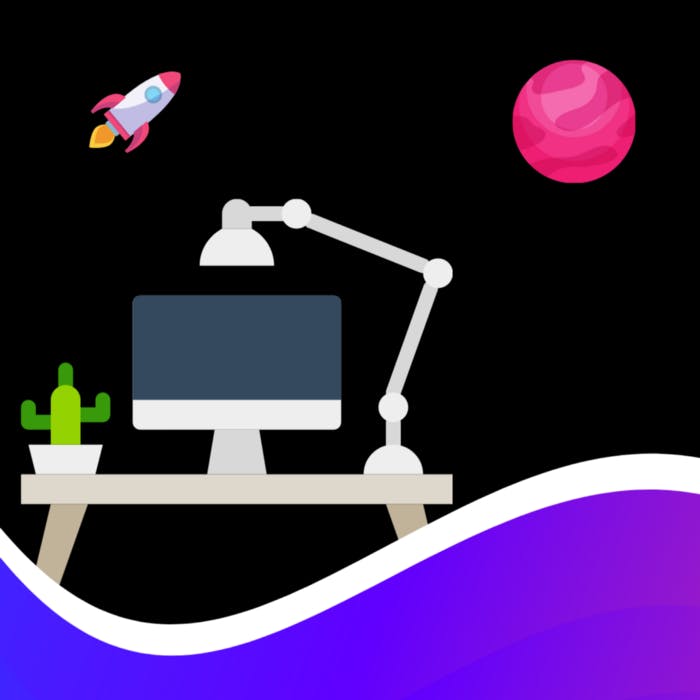The 3 Most Important Soft Skills Developers Need To Know
In the software development industry, technical skills can only get you so far. Sure, it’s nice to know your tools well and have an in-depth understanding of design patterns and best practices, but without soft skills, you might find yourself lost in your career path.
These are the skills that make up the necessary pieces for any programmer: communication, learning, collaboration and motivation.
Whether you’re just beginning your career as a developer or one with years of experience under your belt, I’m sure you’ll find something worthwhile on this list.

1. Communication
Why is communication critical for a developer? Because the ability to communicate your ideas and work with others is one of the most important aspects of being successful both in programming and life. It's the reason why you will be able to work with your clients, team, and potential stakeholders at a much more efficient rate that will allow you to finish projects faster.
Without the right communication systems in place for your team, you risk hitting unnecessary road bumps that you could've avoided.
You have to tell others what you’re working on, why it’s being worked on, when things will be developed, and how your code/resources will be deployed. If you don’t communicate effectively with your team members then you’ll see a lack of engagement. This will negatively impact team morale in the long run.
When I say communicate, that’s not simply a one-way street either. Part of that communication might be feedback on their work or vice versa. It could also be something as important as planning how to test certain features and working out the logistics ahead of time. You have to find the right balance between developing and communicating throughout the project team, or else one side tends to pick up more acknowledgment than the other and problems occur.
Now that you know the importance of communication in a development team, let's actually show you 3 ways to become a better communicator.
1. Be Quick & To The Point
Be brief. Be on point. Be interesting. I have seen many communications that could have been communicated in half the amount of words. We may not have all the time in the world to get a point across, but we can try to be more efficient with the use of our words.
For those writers out there, lock this into your brain. We don’t have the time or attention span to read long emails and reports, so don’t send them. Try to limit the number of words within any individual email or communication to under 250 words.
The point of an email is to get someone to do something. If it’s an invitation for a meeting, try and be as up front as possible. It lets you get to the point quicker and helps people decide if they have time in their schedule to make it. Be courteous by limiting your message to one idea instead of many and being respectful with your time.
2. Ask Questions
Asking questions is a part of life, but asking questions as a developer can be a complicated process. Whether you’re stuck on a bug or simply don’t understand how something works, this is normally the first thing people ask when researching a problem: "How do I fix this?"
Everyone goes through the same struggle and learning curve when diving into programming. Spending just an hour or two asking questions can greatly impact your development in the long run.
If you’re like me, you have a copy of StackOverflow bookmarked in your browser. I visit it multiple times a day to fix simple issues or satisfy my curiosity about code.
The internet is a powerful tool, so use it. You don't always have to rely on the network around you because there is a network of millions of developers online. Start by joining a few communities or following a few popular influencers. Most of the time, when you ask questions related to the post or subject you will get a more than reasonable response.
3. Understand The Objective
Great so you've made sure to ask questions and that they're brief and concise for the person(s) you're asking to get help from. But have you taken into consideration the main objective of what this answer will help you achieve?
We're not just looking for an answer like: "Well it will help me run my program." What we want to know is does your question relates or gets you one step closer to your project's main goal. Either that be completion or following users' requirements, it's all up to you to decide if the questions you're asking are something worth spending the energy on.
Before you ask any question, you should sit back and think about the underlying mission this problem will solve. Is it critical to project development? Does it Make X that much faster so Y can produce Z?
Altogether, if you're asking questions about something that has nothing to do with the main objective, you're wasting your time and the other people around you time.
2. Learning
In the field of development your journey is a constant mash of learning new skills, meeting new people, and figuring out new problems. With mistakes and small wins scattered all around, it is your responsibility to actually learn the outcomes of the events that have occurred throughout your development cycle.

You're not going to be able to learn every new framework or library that comes out, it's impossible. By focusing on the specific topics you wish to learn biased on your current position and interests, it creates a much more narrow roadmap for your focus to lock in on.
Take the time to take new practices or lessons very slowly and fully understand the concepts before moving on. Too many developers think there is just so much that they have to learn on their plate that they have to speed through everything. That's not the case.
You can go in-depth on certain subjects that intrigue you or can help you with your current project, this keeps things fun, interesting, and exciting. This is how programming was meant to be practiced and learned.
By following your passion when learning you not only give yourself a better shot at succeeding but also create a very consistent schedule of learning that you may not have even realize.
This otherwise is described as Flow. Flow is; "the mental state in which a person performing some activity is fully immersed in a feeling of energized focus, full involvement, and enjoyment in the process of the activity."
Consistency is also key into succeeding, and by learning something you're actually passionate about automatically ties in consistent behavior. Don't miss out on this two for one care package and learn something you we're born to learn!
3. Listening
For most of us, listening is unconscious. We are spending a lot of time following our own thoughts, lost in a parallel universe called imagination and creativity. Anybody in his right mind will not argue with the fact that we need imagination and creativity to be good at developing. Sometimes this kind of thinking can go too far. If we don't know how to listen, it's hard to create something useful for anyone else.

Let's separate listening into two categories; Hearing and active listening.
To just hear something is to receive it as sound, without consciously paying attention to the meaning. You can hear a dog bark as much as you can hear a coworker speak.
But do you really hear what people say? Do you understand if the person talking to you wants to achieve something or share an opinion with you? If not, you're hearing and not actually actually active listening.
Active listening involves comprehending what someone wants to get across. Being able to understand what the other person is saying and communicating that you understand also showcases active listening.
Active listening comes down to these three essential skills:
1. Sensing: paying close attention of what is said and how it is said.
2. Processing: synthesizing the information from a conversation and remembering fragments to construct a narrative whole.
3. Responding: showing that you pay attention and trying to clarify any misunderstanding.
By separating the differences from just hearing sound to a more active listening perspective this can allow you to catch yourself when you seem to be drifting off or not paying attention to someone else's words.
It's a skill that needs to be practiced, but with great determination and a constant effort to be better there is no reason why this should not be another tool added to your skillset.
Conclusion
The act of proper communication, learning, and active listening skills will not overall equip you with a better position as a developer but in life as well. These soft skills should not be overlooked, the world involves lots of human interaction, collaboration and discussion.
You will stand out from the crowd as you practice the soft skills that not many take into consideration when becoming an analytical developer, which makes you that much more valuable.
As always we hope you learned a few new things and can use them to your advantage to change the world. We’re rooting for you!
If you have any fun blog ideas for us to do research on and write about, or maybe even want to write an interesting post for us, don’t feel afraid to shoot us a message! We’ll get back to you as quick as possible! You can contact us here at: support@prajix.com
What is Prajix?
Prajix is a startup project my team and I have been working on for almost a year. Our mission is to empower developers from around the world to revolutionize the future we wish to have through online collaboration.
What we do is allow developers to create or join project ideas on our platform, where they can find like-minded individuals to team up and collaborate with in our collaboration rooms.
We are striving to build the most valuable network of programmers, coders, and developers from around the world into one place, creating a technological powerhouse that will help individuals and communities all over the globe.
If this sounds interesting to you or you just want to learn more, visit our website at: www.prajix.com
